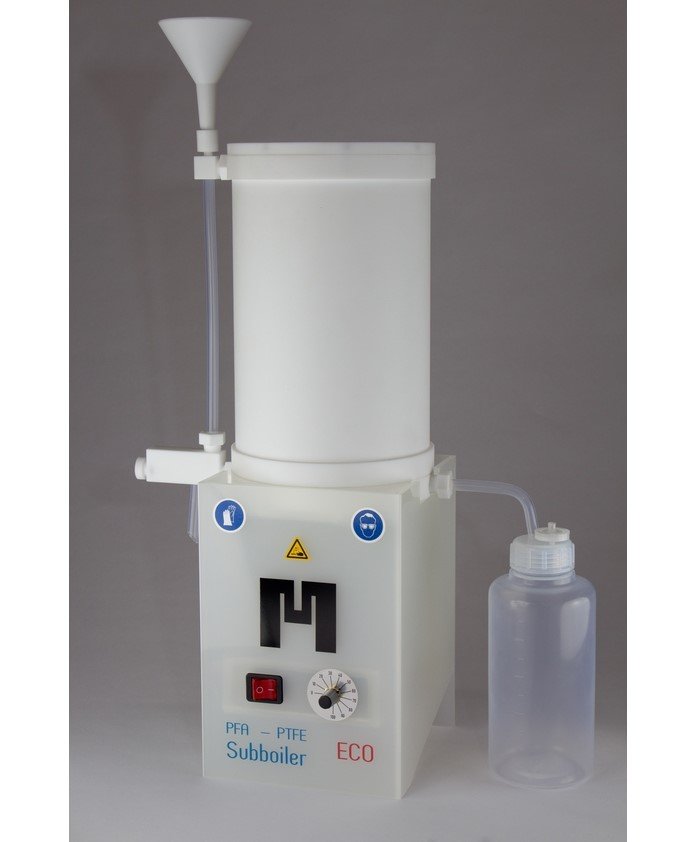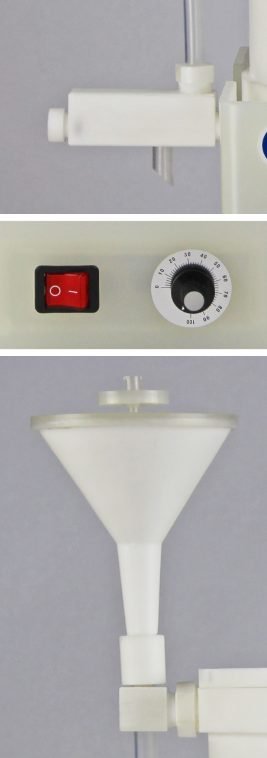Subboiling

Acid cleaning with Subboiler
Acids cleaning below the boiling point, highest purity for trace analysis
Highly pure acids are becoming increasingly important in the field of atomic absorption spectroscopy and ICP / ICP-MS. However, this high purity of acids is expensive and an opened bottle can be contaminated by environmental influences within a very short time.
With the Maassen Subboiler Eco M, you can now produce high-purity acids from a standard quality as needed and reverse contamination of existing acids without having to throw away the expensive acids that are necessary for trace analysis.
Why clean acid?
Why the ECO M?

The funnel has a cover as dust protection with a PTFE filter for ventilation. Open this and fill in the liquid to be cleaned (max. 1000 ml). You can monitor the fill level through the PFA riser tube.
Then switch on the system and adjust the power using the control knob. Select a temperature at which the liquid inside does not boil (recognizable by air bubbles in the riser tube). The lamp is limited to a maximum of 150 W power, which gives enough scope to clean different liquids at the right temperature as required.
The first one to two hours are needed for heating (depending on the temperature of the liquid filled in and the outside temperature), after which you will receive up to 100 ml / h of purified liquid. This corresponds to up to 600 ml of pure water within 8 hours or 400 ml for acids with a higher boiling point than water. This is collected in a transparent PFA bottle, the lid of which has been specially modified for this purpose.
Substances that are difficult to evaporate remain in the PTFE container. If you repeat this process, the quality improves even further. The now enriched acid remaining in the PTFE pot is then drained through the drain tap on the opposite side.
The quality of the purified acid depends on various factors (cleaning time, quality of the acid, temperature). For HF, for example, after cleaning, concentrations of less than 0.05 ppb are common for Ag, As, Au, Ba, Cd, Co, Cr, Cu, Li, Mn, Mo, Pb, Sn and Zn. Na and K can be around 0.6 ppb, Fe around 0.25 ppb.
